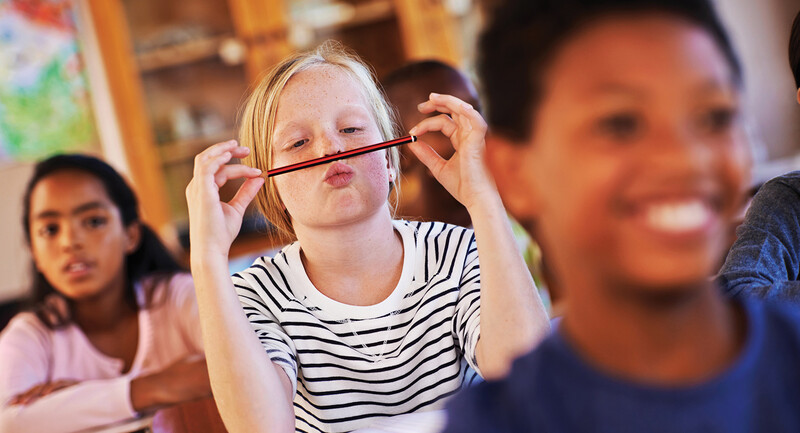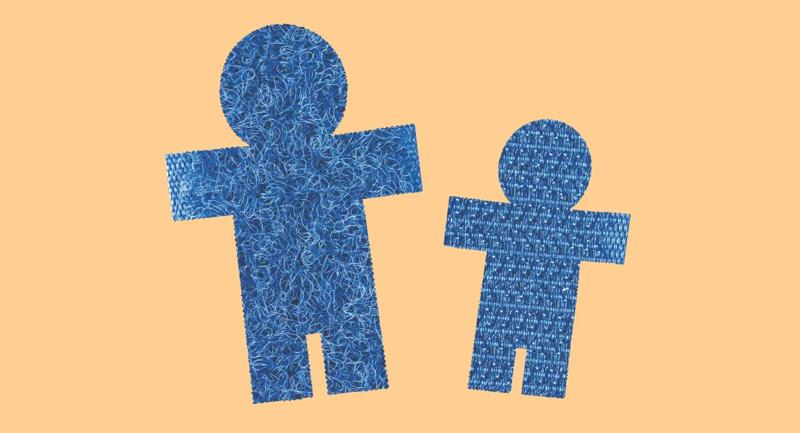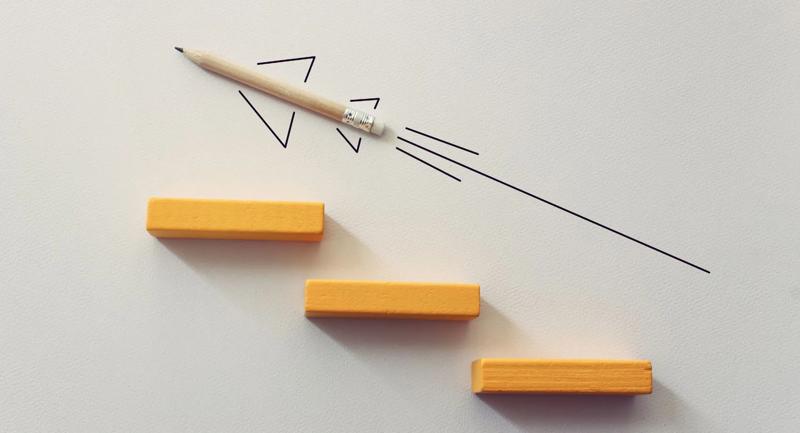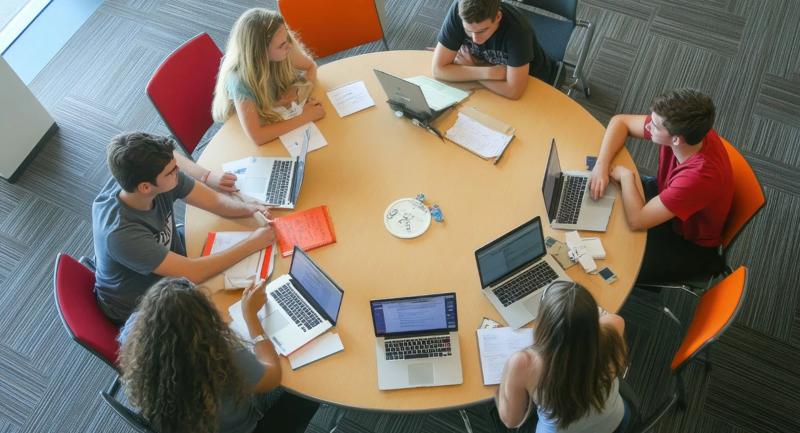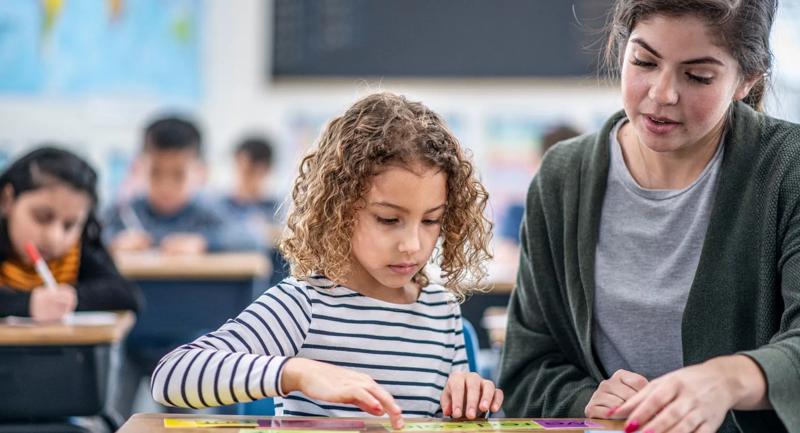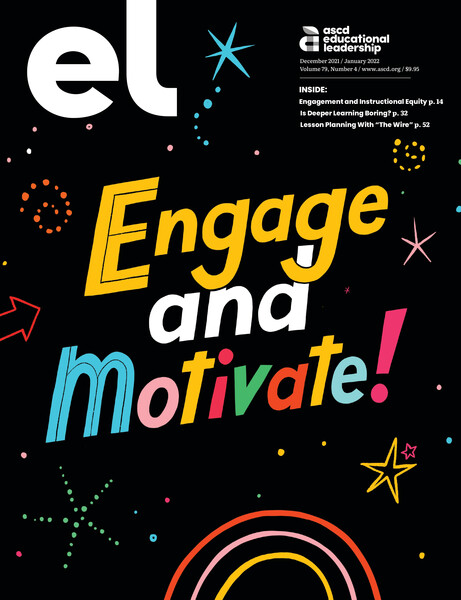Many educators promote the value of instructing students in the use of deeper learning strategies. "Deeper learning" is a broad construct that refers to an array of competencies that prepare students to succeed academically (William and Flora Hewlett Foundation, 2013). At their best, deeper learning strategies motivate students and stimulate their curiosity, leading to improved learning. However, if not implemented appropriately, these strategies can actually be counterproductive, and even lead to disengagement. No educator wants their carefully planned curriculum to fall flat, but if we aren't careful, even our most well-intentioned strategies can sabotage our students' learning objectives and set them on the wrong paths.
As researchers at The Ohio State University, we are involved in a multi-year project working collaboratively with a team of elementary teachers to develop and pilot a curriculum designed to help 4th and 5th graders explore critical social issues using several deeper learning strategies. In one 10-day unit, the students learned about government and citizenship by exploring social dilemmas related to immigration. They read narrative and informational texts (including one central story that was referred to throughout the unit), conducted interviews, collaborated on concept maps, wrote blogs, and led discussions. These activities were designed to encourage deeper learning, where students and teachers explored social issues in depth by examining different sources and multiple perspectives.
However, despite the variety of instructional activities used, in some classrooms the students just didn't seem motivated. A few commented they were "bored." Our goal was to deeply examine the issue of immigration, but for some students, the work felt repetitive and dull. Despite our best efforts at incorporating deeper learning strategies into this unit, something clearly was not working as we had intended.
This experience served as an important reminder for both the teachers and us as researchers: We sought to promote deeper learning in this unit, but we didn't fully attend to the critical role of motivation. Fortunately for educators, the core tenets of deeper learning do align with research on academic motivation—if our instructional practices intentionally incorporate them.
So how do we do that?
Looking Deeper at Deep Learning
Administrators and educators may assume that deeper learning automatically results in greater student motivation—after all, as its name implies, this approach prioritizes depth over breadth and allows students to immerse themselves in a particular topic or subject. Yet, as we saw with the immigration unit, this is not always the case.
To understand why, we have to understand how deeper learning and motivation are linked. Let's first look more closely at the concept of deeper learning. Deeper learning often refers to the competencies, skills, and dispositions students need to apply what they learn in school to solve problems and thrive in the current world (William and Flora Hewlett Foundation, 2013). Deeper learning speaks to both student outcomes and the instructional strategies that facilitate deeper learning experiences. While there are several ways of defining deeper learning outcomes, many educators use the core competencies developed by the William and Flora Hewlett Foundation, which include:
Feeling efficacious at mastering content.
Solving problems and thinking critically.
Collaborating and communicating effectively.
Developing academic mindsets.
But to get to these outcomes, educators must also consider strategies such as interdisciplinary, project-based learning that encourages the application and transfer of knowledge and skills; authentic learning that increases the personal relevance of content; learning activities that go beyond surface-level coverage and increase cognitive engagement; and classroom structures that enable the development of positive peer interactions and meaningful relationships between students and teachers (Agger & Koenka, 2020; Ottmar, 2019).
Understanding Goal Theory
As the immigration unit showed, curriculum designers and educators must pay attention to motivation to ensure deeper learning engages students in meaningful ways. Teachers and administrators often think about motivation as something that the student brings into the classroom—a student either has it or he does not. Students do, of course, enter classrooms with different motivation levels, but these are not fixed. Many studies indicate that teachers' instructional practices are strong determinants of student motivation (e.g., MacIver, Young, & Washburn, 2002).
Promoting Deeper Learning
When teachers communicate to students that mastery is the most important outcome for the unit, students are more likely to use strategies that promote deeper learning.
There are several frameworks that have been used to examine academic motivation. We'll focus on Achievement Goal Theory (AGT) because its findings align closely with deeper learning. AGT encompasses two types of goals—personal goals (the individual goals that students have when they engage in schoolwork), and classroom goal structures (students' perceptions of goals that are emphasized by the teacher). Both students' personal goals and perceived classroom goal structures can be divided into goals (or goal structures) aimed at mastery of academic tasks (i.e., mastery goals/mastery goal structures) and goals aimed at demonstrating one's ability while working on those tasks (i.e., performance goals/performance goal structures).
To illustrate, let's consider our immigration unit. Students who hold personal mastery goals would want to learn as much as possible about immigration—about why people immigrate, the challenges that immigrants face, and immigration policies. They become genuinely interested in immigration and want to learn more about it (i.e., they want to "master" the topic). Mastery-oriented students are likely to put forth effort and are not overly concerned with how their progress compares to that of other students.
But students don't become focused on mastery by magic. Rather, they are more likely to adopt mastery goals when they perceive their teachers promoting mastery (i.e., when they perceive a mastery goal structure). In the immigration unit, a teacher who promotes a mastery goal structure would embrace instructional strategies that encourage students to take on challenges (investigating the complexities of immigration during the COVID-19 pandemic), allow students to make some choices (encouraging them to explore immigration from a country that they are interested in), and encourage students to focus on their own, individual progress (as opposed to students comparing their progress to that of their classmates).
By contrast, a student who holds performance goals, according to Achievement Goal Theory, would be focused on how their work compares to others' work. Performance goals can diminish students' motivation, particularly when students become focused on concerns about their classmates' perceptions of their work or abilities (Senko, Hulleman, & Harackiewicz, 2011).
Various instructional practices, while well-intentioned, may encourage students to focus on performance goals. For example, research indicates that when teachers publicly point out which students are doing well on a task, or when teachers make it obvious that some students are experiencing challenges, students become focused on how they are perceived by their peers, rather than on mastering the task (Anderman, 2021). Educators also promote performance goals when they repeatedly emphasize the importance of tests in the learning process. As a result, students come to believe that the main reason that they are learning about immigration, for instance, is because they'll be tested on it (rather than because of its relevance to society or their lives). If students are overly focused on being tested, then they'll primarily concentrate on what they need to know for the test. Deeper learning, and mastery goals, may fall by the wayside.
When Motivation and Deeper Learning Meet
Many studies conducted with both young children and adolescents indicate that when students hold mastery goals, and when teachers promote a mastery goal structure, students use more effective cognitive strategies. Similarly, proponents of teaching for deeper learning emphasize the importance of students being able to learn how to learn (and not just regurgitate facts). When students are encouraged to hold mastery goals, they are likely to use cognitive and self-regulatory strategies that are aligned with deeper learning.
More specifically, when teachers communicate to students that mastery—for example, deeply understanding how immigration affects the lives of people in our community—is the most important outcome for the unit (as opposed to test scores), students are more likely to use strategies that promote deeper learning, such as monitoring their understanding and progress, or stopping and summarizing what they are reading to ensure understanding (Nolen & Haladyna, 1990). Students who hold mastery goals are also less likely to cheat on their work (which is antithetical to deeper learning), because they are motivated to learn about the subject and not concerned with how others perceive them or with simply passing a test (Murdock & Anderman, 2006).
By contrast, research on the effects of performance goals on cognitive strategies is mixed, although one consistent finding is that when students are focused on not appearing "dumb" compared to their classmates, they use less effective cognitive strategies and experience negative emotions (Huang, 2011). For example, if students are engaging in small-group discussions about immigration, and if the teacher repeatedly points out which students are asking the best questions and providing the best answers, students will become focused on how their ability (or lack of ability) is judged by others, rather than trying to gain an in-depth understanding of the topic.
When students are focused on not appearing "dumb" compared to their classmates, they use less effective cognitive strategies and experience negative emotions.
Creating a Mastery Goal Structure
By attending to both deeper learning and mastery goals, teachers can avoid hearing the dreaded phrase, "I'm bored," from their students. Based on our own experiences working with teachers on the immigration unit, we were able to incorporate several changes into our work to enhance students' motivation. For example, we added more opportunities for students to make choices during the curriculum, such as letting them choose different immigration stories to study throughout the unit. In addition, we created activities that integrate the content on immigration into immersive collaborative activities (such as asking students to work in small groups as part of a "committee" charged with helping the government support immigrants).
Here are several evidence-informed strategies we recommend to promote mastery goals that can be readily implemented by teachers and encouraged by school leaders:
Allow students to make choices about their learning. When students can make decisions (such as being able to choose from four different immigration case studies), they will be more likely to focus on the task and to learn more deeply from the curriculum because they can choose what they are most interested in.
Loosen up on time limits and deadlines. Time limits and deadlines are antithetical to deeper learning and mastery. To explore a topic deeply, students need to be able to re-read materials; re-watch a video; "sleep on it"; and think and reflect about what they learned and discussed. Strict deadlines deter students from focusing on mastery and learning deeply about a topic. They are more likely to rush through a task or activity when they are constantly focused on completing the task by a specific impending deadline.
Create an environment in which mistakes and misconceptions are valued and treated as learning opportunities. When examining complex social issues such as immigration, students may realize that they misunderstood something, or that peers have counterarguments to their own point of view. For example, a student might initially believe that people only immigrate when they are experiencing difficult living conditions in their countries of origin (war, poverty, etc.). However, over time, the student may come to see that their initial understanding of immigration was rather narrow, and that people immigrate for a variety of reasons. When teachers encourage students to focus on mastery goals, students view mistakes and misconceptions as opportunities to challenge their own thinking and to deepen their understanding.
Avoid public recognition of achievements and failures. Students like to be recognized for their achievements, and they also need support when they face difficulties. But to promote deeper learning and mastery, feedback should be given privately. When students repeatedly hear about other students being recognized for their achievements, or fear being embarrassed by corrective feedback, they become focused on social comparisons and not on taking the necessary time to deeply learn about the topic.
Encourage collaboration instead of competition. Collaboration encourages students to learn from each other, to work together to achieve common goals, and to share different perspectives that encourage critical thinking and communication. For example, in the immigration unit, teachers could encourage students to collaboratively investigate the reasons why many citizens of Haiti (or other countries) want to immigrate to the United States.
Deepening Learning Outcomes
All educators want their students to learn deeply and be motivated. However, when educators' attempts to promote deeper learning are not aligned with instructional strategies that promote mastery, their efforts to promote deeper learning can fail.
Encouraging mastery over performance aligns with the core tenets of deeper learning. Administrators need to encourage teachers to emphasize mastery of the content so that students can learn deeply. Administrators can promote this focus on mastery through professional development and by implementing school-level policies that support the promotion of mastery goals. These strategies do not require expensive technology or new materials. Rather, the regular use of such strategies such as flexible deadlines or giving students choices simply requires that teachers be willing to try, and that administrators support their efforts. Deeper learning for all can become a reality if we truly consider what motivates our students and plan our lessons to encourage that.
Reflect and Discuss
How are motivation and deeper learning linked?
Can you think of ways you can add more choice and less competition to your instruction?
What motivational strategies can you use in your deeper learning lessons to ensure students won't get "bored"?

